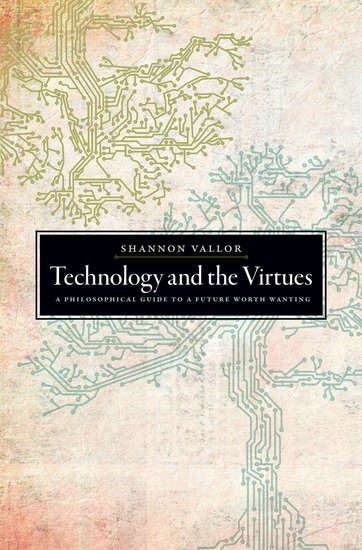We do a lot of work and have a lot of conversations around here with people working on the social implications of technology, but some folx sometimes still don’t quite get what I mean when I say that our values get embedded in our technological systems, and that the values of most internet companies, right now, are capitalist brand engagement and marketing. To that end, I want to take a minute to talk to you about something that happened, this week and just a heads-up, this conversation is going to mention sexual assault and the sexual predatory behaviour of men toward young girls.
Continue Reading
science technology and society
All posts tagged science technology and society
As you already know, we went to the second Juvet A.I. Retreat, back in September. If you want to hear several of us talk about what we got up to at the then you’re in luck because here are several conversations conducted by Ben Byford of the Machine Ethics Podcast.
I am deeply grateful to Ben Byford for asking me to sit down and talk about this with him. I talk a great deal, and am surprisingly able to (cogently?) get on almost all of my bullshit—technology and magic and the occult, nonhuman personhood, the sham of gender and race and other social constructions of expected lived categories, the invisible architecture of bias, neurodiversity, and philosophy of mind—in a rather short window of time.
So that’s definitely something…
Kirsten and I spent the week between the 17th and the 21st of September with 18 other utterly amazing people having Chatham House Rule-governed conversations about the Future of Artificial Intelligence.
We were in Norway, in the Juvet Landscape Hotel, which is where they filmed a lot of the movie Ex Machina, and it is even more gorgeous in person. None of the rooms shown in the film share a single building space. It’s astounding as a place of both striking architectural sensibility and also natural integration as they built every structure in the winter to allow the dormancy cycles of the plants and animals to dictate when and where they could build, rather than cutting anything down.
And on our first full day here, Two Ravens flew directly over my and Kirsten’s heads.
Yes.

[Image of a rainbow rising over a bend in a river across a patchy overcast sky, with the river going between two outcropping boulders, trees in the foreground and on either bank and stretching off into the distance, and absolutely enormous mountains in the background]
I am a fortunate person. I am a person who has friends and resources and a bloody-minded stubbornness that means that when I determine to do something, it will more likely than not get fucking done, for good or ill.
I am a person who has been given opportunities to be in places many people will never get to see, and have conversations with people who are often considered legends in their fields, and start projects that could very well alter the shape of the world on a massive scale.
Yeah, that’s a bit of a grandiose statement, but you’re here reading this, and so you know where I’ve been and what I’ve done.
I am a person who tries to pay forward what I have been given and to create as many spaces for people to have the opportunities that I have been able to have.
I am not a monetarily wealthy person, measured against my society, but my wealth and fortune are things that strike me still and make me take stock of it all and what it can mean and do, all over again, at least once a week, if not once a day, as I sit in tension with who I am, how the world perceives me, and what amazing and ridiculous things I have had, been given, and created the space to do, because and in violent spite of it all.
So when I and others come together and say we’re going to have to talk about how intersectional oppression and the lived experiences of marginalized peoples affect, effect, and are affected and effected BY the wider techoscientific/sociotechnical/sociopolitical/socioeconomic world and what that means for how we design, build, train, rear, and regard machine minds, then we are going to have to talk about how intersectional oppression and the lived experiences of marginalized peoples affect, effect, and are affected and effected by the wider techoscientific/sociotechnical/sociopolitical/socioeconomic world and what that means for how we design, build, train, rear, and regard machine minds.
So let’s talk about what that means.
So The U.S. Transhumanist Party recently released some demographic info on their first 1,000 members, and while they seem to be missing some some rather crucial demographic markers, here, such as age and ethnicity, the gender breakdown is about what you’d expect.
I mention this because back at the end of June I attended the Decolonizing Mars Unconference, at the Library of Congress in D.C. It was the first time I had been in those buildings since I was a small child, and it was for such an amazing reason.
We discussed many topics, all in the interest of considering what it would really mean to travel through space to another planet, and to put humans and human interests there, longterm. Fundamentally, our concern was, is it even possible to do all of this without reproducing the worst elements of the colonialist projects we’ve seen on Earth, thus far, and if so, how do we do that?

[Image of Mars as seen from space, via JPL]
Previously, I told you about The Human Futures and Intelligent Machines Summit at Virginia Tech, and now that it’s over, I wanted to go ahead and put the full rundown of the events all in one place.
The goals for this summit were to start looking at the ways in which issues of algorithms, intelligent machine systems, human biotech, religion, surveillance, and more will intersect and affect us in the social, academic, political spheres. The big challenge in all of this was seen as getting better at dealing with this in the university and public policy sectors, in America, rather than the seeming worse we’ve gotten, so far.
Here’s the schedule. Full notes, below the cut.
Friday, June 8, 2018
- Josh Brown on “the distinction between passive and active AI.”
- Daylan Dufelmeier on “the potential ramifications of using advanced computing in the criminal justice arena…”
- Mario Khreiche on the effects of automation, Amazon’s Mechanical Turk, and the Microlabor market.
- Aaron Nicholson on how technological systems are used to support human social outcomes, specifically through the lens of policing in the city of Atlanta
- Ralph Hall on “the challenges society will face if current employment and income trends persist into the future.”
- Jacob Thebault-Spieker on “how pro-urban and pro-wealth biases manifest in online systems, and how this likely influences the ‘education’ of AI systems.”
- Hani Awni on the sociopolitical of excluding ‘relational’ knowledge from AI systems.
Saturday, June 9, 2018
- Chelsea Frazier on rethinking our understandings of race, biocentrism, and intelligence in relation to planetary sustainability and in the face of increasingly rapid technological advancement.
- Ras Michael Brown on using the religions technologies of West Africa and the West African Diaspora to reframe how we think about “hybrid humanity.”
- Damien Williams on how best to use interdisciplinary frameworks in the creation of machine intelligence and human biotechnological interventions.
- Sara Mattingly-Jordan on the implications of the current global landscape in AI ethics regulation.
- Kent Myers on several ways in which the intelligence community is engaging with human aspects of AI, from surveillance to sentiment analysis.
- Emma Stamm on the idea that datafication of the self and what about us might be uncomputable.
- Joshua Earle on “Morphological Freedom.”
This weekend, Virginia Tech’s Center for the Humanities is hosting The Human Futures and Intelligent Machines Summit, and there is a link for the video cast of the events. You’ll need to Download and install Zoom, but it should be pretty straightforward, other than that.
You’ll find the full Schedule, below the cut.
My piece “Cultivating Technomoral Interrelations,” a review of Technology and the Virtues: A Philosophical Guide to a Future Worth Wanting has been up over at the Social Epistemology Research and Reply Collective for a few months, now, so I figured I should post something about it, here.
As you’ll read, I was extremely taken with Vallor’s book, and think it is a part of some very important work being done. From the piece:
Additionally, her crucial point seems to be that through intentional cultivation of the self and our society, or that through our personally grappling with these tasks, we can move the world, a stance which leaves out, for instance, notions of potential socioeconomic or political resistance to these moves. There are those with a vested interest in not having a more mindful and intentional technomoral ethos, because that would undercut how they make their money. However, it may be that this is Vallor’s intent.
The audience and goal for this book seems to be ethicists who will be persuaded to become philosophers of technology, who will then take up this book’s understandings and go speak to policy makers and entrepreneurs, who will then make changes in how they deal with the public. If this is the case, then there will already be a shared conceptual background between Vallor and many of the other scholars whom she intends to make help her to do the hard work of changing how people think about their values. But those philosophers will need a great deal more power, oversight authority, and influence to effectively advocate for and implement what Vallor suggests, here, and we’ll need sociopolitical mechanisms for making those valuative changes, as well.

[Image of the front cover of Shannon Vallor’s TECHNOLOGY AND THE VIRTUES. Circuit pathways in the shapes of trees.]
As we continue the work of building these systems, and in the wake of all these recent events, more and more like this will be necessary.
Shannon Vallor’s Technology and the Virtues: A Philosophical Guide to a Future Worth Wanting is out in paperback, June 1st, 2018. Read the rest of “Cultivating Technomoral Interrelations: A Review of Shannon Vallor’s Technology and the Virtues” at the Social Epistemology Review and Reply Collective.
Earlier this month I was honoured to have the opportunity to sit and talk to Douglas Rushkoff on his TEAM HUMAN podcast. If you know me at all, you know this isn’t by any means the only team for which I play, or even the only way I think about the construction of our “teams,” and that comes up in our conversation. We talk a great deal about algorithms, bias, machine consciousness, culture, values, language, and magick, and the ways in which the nature of our categories deeply affect how we treat each other, human and nonhuman alike. It was an absolutely fantastic time.

From the page:
In this episode, Williams and Rushkoff look at the embedded biases of technology and the values programed into our mediated lives. How has a conception of technology as “objective” blurred our vision to the biases normalized within these systems? What ethical interrogation might we apply to such technology? And finally, how might alternative modes of thinking, such as magick, the occult, and the spiritual help us to bracket off these systems for pause and critical reflection? This conversation serves as a call to vigilance against runaway systems and the prejudices they amplify.
As I put it in the conversation: “Our best interests are at best incidental to [capitalist systems] because they will keep us alive long enough to for us to buy more things from them.” Following from that is the fact that we build algorithmic systems out of those capitalistic principles, and when you iterate out from there—considering all attendant inequalities of these systems on the merely human scale—we’re in deep trouble, fast.
Check out the rest of this conversation to get a fuller understanding of how it all ties in with language and the occult. It’s a pretty great ride, and I hope you enjoy it.
Until Next Time.
I have a review of Ashley Shew’s Animal Constructions and Technological Knowledge, over at the Social Epistemology Research and Reply Collective: “Deleting the Human Clause.”

From the essay:
Animal Constructions and Technological Knowledge is Ashley Shew’s debut monograph and in it she argues that we need to reassess and possibly even drastically change the way in which we think about and classify the categories of technology, tool use, and construction behavior. Drawing from the fields of anthropology, animal studies, and philosophy of technology and engineering, Shew demonstrates that there are several assumptions made by researchers in all of these fields—assumptions about intelligence, intentionality, creativity and the capacity for novel behavior…
Shew says that we consciously and unconsciously appended a “human clause” to all of our definitions of technology, tool use, and intelligence, and this clause’s presumption—that it doesn’t really “count” if humans aren’t the ones doing it—is precisely what has to change.
I am a huge fan of this book and of Shew’s work, in general. Click through to find out a little more about why.
Until Next Time.
So, many of you may remember that back in June of 2016, I was invited to the Brocher Institute in Hermance, Switzerland, on the shores of Lake Geneva, to take part in the Frankenstein’s Shadow Symposium sponsored by Arizona State University’s Center for Science and the Imagination as part of their Frankenstein Bicentennial project.
While there, I and a great many other thinkers in art, literature, history, biomedical ethics, philosophy, and STS got together to discuss the history and impact of Mary Shelley’s Frankenstein. Since that experience, the ASU team compiled and released a book project: A version of Mary Shelley’s seminal work that is filled with annotations and essays, and billed as being “For Scientists, Engineers, and Creators of All Kinds.”

[Image of the cover of the 2017 edited, annotated edition of Mary Shelley’s Frankenstein, “Annotated for Scientists, Engineers, and Creators of All Kinds.”]
From the About Page:
Frankenbook is a collective reading and collaborative annotation experience of the original 1818 text of Frankenstein; or, The Modern Prometheus, by Mary Wollstonecraft Shelley. The project launched in January 2018, as part of Arizona State University’s celebration of the novel’s 200th anniversary. Even two centuries later, Shelley’s modern myth continues to shape the way people imagine science, technology, and their moral consequences. Frankenbook gives readers the opportunity to trace the scientific, technological, political, and ethical dimensions of the novel, and to learn more about its historical context and enduring legacy.
To learn more about Arizona State University’s celebration of Frankenstein’s bicentennial, visit frankenstein.asu.edu.
You’ll need to have JavaScript enabled and ad-blocks disabled to see the annotations, but it works quite well. Moving forward, there will be even more features added, including a series of videos. Frankenbook.org will be the place to watch for all updates and changes.
I am deeply honoured to have been asked to be a part of this amazing project, over the past two years, and I am so very happy that I get to share it with all of you, now. I really hope you enjoy it.
Until Next Time.
